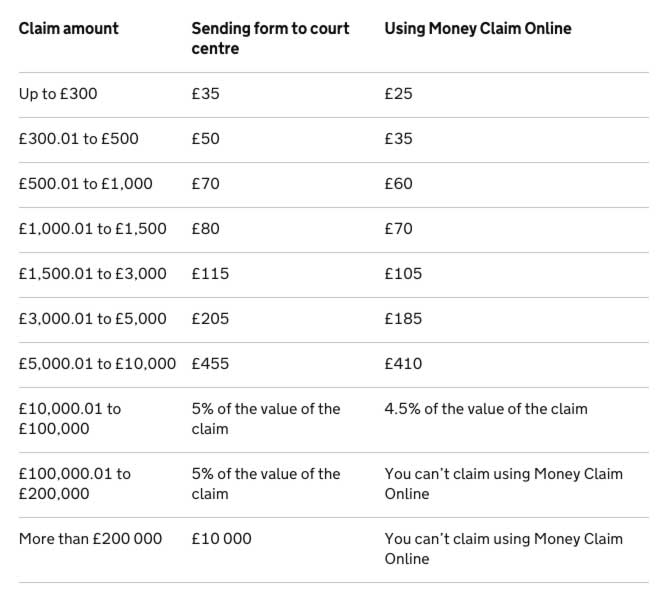If someone owes you money and won’t pay you then you can make a court claim against them, often referred to as taking someone to ‘small claims court’.
You will pay a small fee which varies on the amount you’re claiming for, you will either win or lose your case.
Before you do this, you might find a mediation service a cheaper and quicker solution, however it will depend on your previous dealings with the other party on whether you believe they will agree to this.
Applying online is the cheapest option, however you can apply via letter as well here are the fees for comparison:

Current list of Court Fees (subject to change, correct as of Jan 2016). Further updates will be on https://www.gov.uk/make-court-claim-for-money/court-fees
You may have to pay more fees later on – eg if there’s a court hearing, or you need to get a judgment enforced.
If you win your case you may be able to claim court fees back from the other party.
Once you’ve submitted your claim, the other party has 14 days to respond. If they ignore your response you can get the court to order them to pay.
If they pay you or you mutually agree a solution to the issue then you must inform them that you’re withdrawing the claim & you must inform the court. If you do this before 7 days of the hearing you may get your court fees refunded.
Trying to settle outside of court is best for everyone involved.
If the other party deny the money or challenge it.
Then you will most likely have to go to court, further fees will be payable.
Going to court
If your case is a small claim – under £10,000 – it may be dealt with using written evidence, without a hearing.
If there is a hearing, you can:
- represent yourself
- pay for a barrister or solicitor to represent you
- ask someone to speak on your behalf, like your partner, parents or an advice worker – you must get the court’s permission
Small claims hearings can be held in the judge’s room or a court-room at a county court.
Cases worth more than £10,000
There may be a more formal hearing if you’re claiming for more than £10,000 and you should get legal advice.
For more information please go to https://www.gov.uk/make-court-claim-for-money/overview
2 comments


























